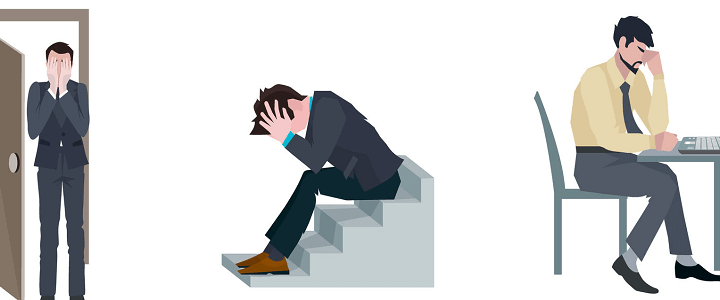Depression and anxiety are two extremely common and often treatable mental health conditions. Although they are distinctly separate conditions, each with their own symptoms, the Mayo Clinic notes that they frequently occur together and share similar treatments[1]:
“Anxiety may occur as a symptom of clinical (major) depression. It’s also common to have depression that’s triggered by an anxiety disorder, such as generalized anxiety disorder, panic disorder or separation anxiety disorder.
Symptoms of both conditions usually improve with psychological counseling (psychotherapy), medications, such as antidepressants, or both. Lifestyle changes, such as improving sleep habits, increasing social support, using stress-reduction techniques or getting regular exercise, also may help.”
Over the years, the government has made marginal efforts to educate security clearance holders about the fact that most common mental health conditions – i.e. depression and/or anxiety – do not generally disqualify individuals from obtaining a security clearance unless the condition: makes them a danger to themselves or others; adversely impacts their ability to safeguard classified information; or otherwise significantly and adversely impacts their reliability, judgment, or trustworthiness.
Unfortunately, those half-hearted efforts have created a vacuum of knowledge that has long been filled by urban myths about run-of-the-mill mental health conditions being security clearance “deal-breakers”, particularly within the military.
Update to the SF-86 Should Ease Anxiety
The latest version of the SF-86 form, issued in 2016, appears to be the first significant acknowledgment by the government of the problems this knowledge gap created. Now, instead of the vague (and perhaps ominous) question about whether a clearance holder or applicant has seen a mental health practitioner within the last 7 years, the questions are broken down into more clear-cut pieces seemingly designed to identify the few particular mental health situations that can create security clearance concerns.
These include hospitalization for a mental health condition; adjudication of mental incompetence by a court or administrative agency; an order by a court or agency to consult with a mental health practitioner; failure to comply with a prescribed treatment regimen; or certain enumerated conditions that are more severe.
This is a good start to solving a significant problem within the national security community, although additional efforts remain necessary to educate the workforce.
In the meantime, the key takeaways for security clearance holders are simply this:
If you have depression and/or anxiety, you’re in good company with countless other security clearance holders. You shouldn’t feel ashamed or stigmatized because of it.
Seeking out treatment for such a condition (or any mental health condition, for that matter) is NOT itself disqualifying for obtaining a security clearance. In fact, it is quite the opposite. Failure to obtain mental health care when needed can be viewed as evidence that you are in denial and/or lacking in judgment.
Finally, if a military recruiter or other individual, however well-meaning, advises you not to list mental health treatment that is reportable on the SF-86 don’t take the bait. The number of clearance denials we see for lack of candor far exceed those we see for mental health considerations.
This article is intended as general information only and should not be construed as legal advice. Consult an attorney regarding your specific situation.
[1] Sawchuk, Craig. Depression and Anxiety: Can I Have Both? The Mayo Clinic. June 2, 2017.




